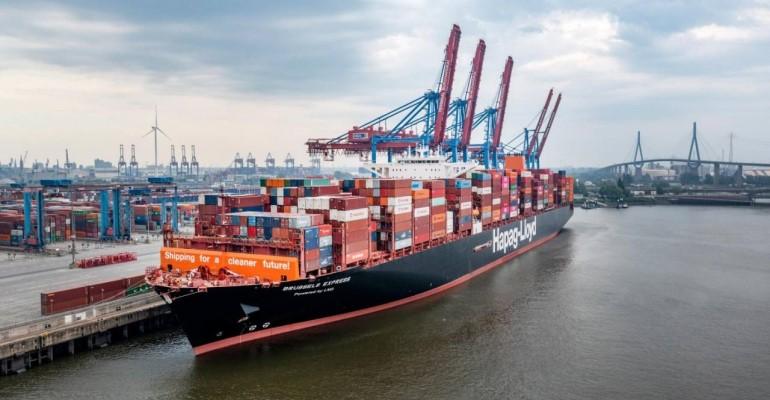Bunkering for these twelve new vessels is expected to commence during the second half of 2023 and LNG will be supplied in the Port of Rotterdam. The modern ships will be deployed on Europe-Asia routes and call at major ports including Rotterdam, Hamburg, Singapore, and Shanghai.
Hapag-Lloyd will immediately reduce the CO2 intensity of these vessels by up to 23% by using LNG, compared to conventional fuels. Additionally, the use of LNG supports the almost complete reduction of particle emissions. This is another important step for Hapag-Lloyd to reduce emissions and decarbonise its fleet in line with its goal of becoming net zero carbon by 2045.
Shell is exploring the viability of, and investing in a range of fuels, technologies and solutions that will help decarbonise shipping, including the use of LNG, where through an extensive network of 15 LNG bunkering locations in 10 countries globally. Shell has already achieved over 1,000 safe ship-to-ship bunkering operations to its marine customers.
In addition to the LNG supply agreement, Shell and Hapag-Lloyd have entered into a strategic collaboration agreement intended to accelerate the further decarbonisation of alternative marine fuels. Initial focus will be given to developing the potential of additional low carbon fuels solutions including liquefied biomethane and the hydrogen-based fuel liquefied e-methane. Liquefied biomethane as a marine fuel has the potential to reduce greenhouse gas emissions by between 65% and 100%.
“Shipping decarbonisation must accelerate and, as the lowest-carbon fuel available at scale today, LNG is a key part of the transition to lower-carbon marine fuels. As we look to the future, we are committed to working with leading shipping companies like Hapag-Lloyd to establish the credible pathways to net zero,” said Tahir Faruqui, General Manager, Head of Downstream LNG at Shell.
“We are excited about our agreement with Shell to explore further decarbonisation opportunities as it allows both businesses to drive impactful change in the industry. Collaborations like this are crucial in helping us deliver our sustainability strategy while also improving emissions in maritime shipping. Ultimately, this enables our customers to decrease their carbon footprint as well,” said Jan Christensen, Senior Director Global Fuel Purchasing at Hapag-Lloyd.
Copyright © 2024. All rights reserved. Seatrade, a trading name of Informa Markets (UK) Limited.
Add Seatrade Maritime News to your Google News feed.  |

